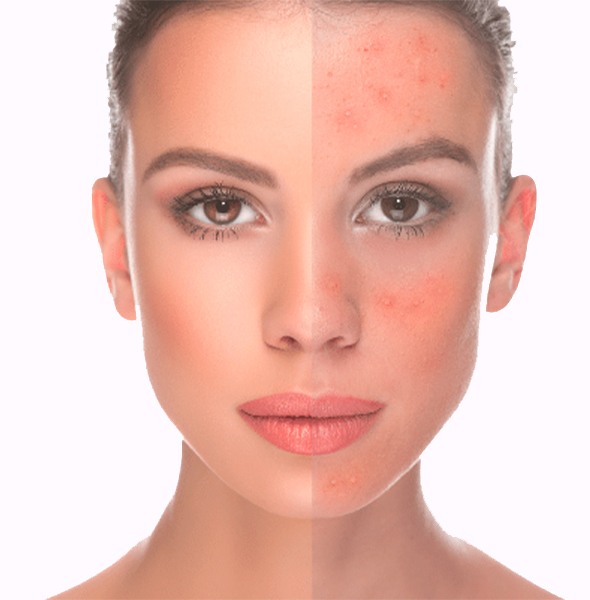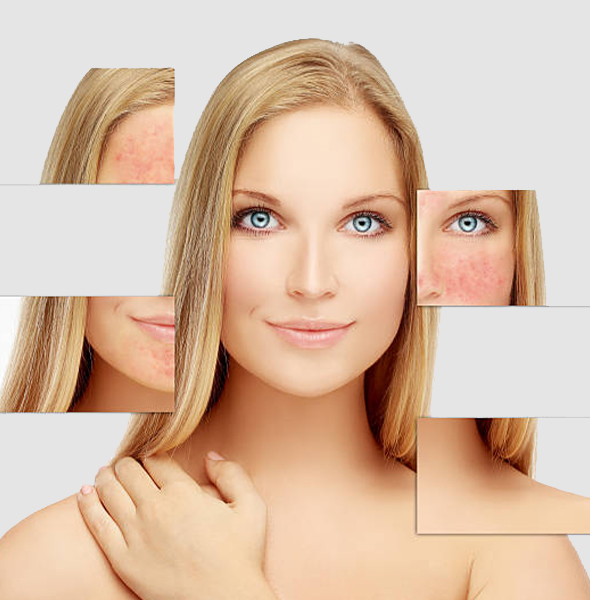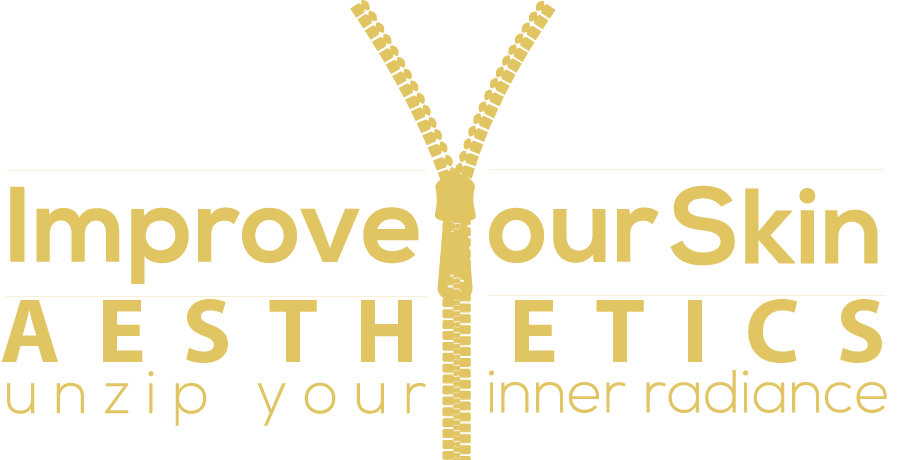Rosacea
Rosacea’s trademark symptom is small, red, pus-filled bumps on the skin that are present during flare-ups. Typically, rosacea affects only skin on your nose, cheeks, and forehead.
Coping with rosacea
Rosacea is a chronic skin disease that you will need to learn to manage. It can be difficult to cope with a chronic condition.

- Rosacea (pronounced "roh-ZAY-sha") is a chronic and potentially life-disruptive disorder primarily of the facial skin, often characterized by flare-ups and remissions. Many have observed that it typically begins as a redness on the cheeks, nose, chin or forehead that may come and go. Over time, the redness tends to become ruddier and more persistent, and visible blood vessels may appear. Left untreated, bumps and pimples often develop, and in severe cases the nose may grow swollen and bumpy from excess tissue. This is the condition, called rhinophyma.
- Rosacea (pronounced "roh-ZAY-sha") is a chronic and potentially life-disruptive disorder primarily of the facial skin, often characterized by flare-ups and remissions. Many have observed that it typically begins as a redness on the cheeks, nose, chin or forehead that may come and go. Over time, the redness tends to become ruddier and more persistent, and visible blood vessels may appear. Left untreated, bumps and pimples often develop, and in severe cases the nose may grow swollen and bumpy from excess tissue. This is the condition, called rhinophyma.
- This then allows us access to the new skin cells when applying products to kill any bacteria in the skin. These products also have a calming effect on the skin to ensure safe application to even the most sensitive of skins.
- Light therapy is then used to heal the skin, rebuild skin cells and strengthen the skins immune system, a very important part when dealing with highly reactive sensitive skin types. We will then apply products to the skin that not only kill any form of bacteria but will also insure the skin is kept calm in the process, reducing sensitivity and redness. The light therapy will penetrate these ingredients further into the skin allowing the skin to fully absorb the active ingredients in order to gain the most from our treatments.
- It is very important that you apply the correct ingredients for your skin as rosacea skin can react and be highly sensitive. We aim to reduce the redness, kill the bacteria and strengthen your skin along side treatment at home, so your skin can handle all the daily defences such as cold weather, pollution, stress and even some foods! We ensure your skin is to a point where it is able to take our products before prescribing them to you so you can be in full confidence when using our products for the first time. They are made from natural ingredients for sensitive skin and we have full experience in using them so be rest assured you and your skin are in safe hands.
- All rosacea treatments are bespoke to the individual's needs depending on what grade of rosacea is presented


01 Signs
02 Causes
03 Myths
04 Facts
05 Get Help
01 Signs
Red flushes. Persistent facial redness. Visible blood vessels. Papules and pustules. Thickened skin. Eye problems.
02 Causes
Although the exact cause of rosacea is unknown, various theories about the disorder’s origin have evolved over the years. Facial blood vessels may dilate too easily, and the increased blood near the skin surface makes the skin appear red and flushed. Various lifestyle and environmental factors — called triggers — can increase this redness response. Acne-like bumps may appear, often in the redder area of the central face. This may be due to factors related to blood flow, skin bacteria, microscopic skin mites (Demodex), irritation of follicles, sun damage of the connective tissue under the skin, an abnormal immune or inflammatory response, or psychological factors.
03 Myths
Coffee and Caffeine Cause Flare-ups. Rosacea is Caused by Poor Hygiene. Rosacea is Contagious. Rosacea is the Same as Acne. Those with Rosacea are Heavy Drinkers.
04 Facts
Occurs in people of Celtic or Scandinavian origin. Usually starts after age 30. More common in women. More severe in men. Affects over 13 million Americans. No lab tests to diagnose it.
05 Get Help
How can we help? We tailor make a skin care regime especially for you once your consultation has taken place.
Frequently Asked Questions
Rosacea (pronounced “roh-ZAY-sha”) is a chronic and potentially life-disruptive disorder primarily of the facial skin, often characterized by flare-ups and remissions. Many have observed that it typically begins any time after age 30 as a redness on the cheeks, nose, chin or forehead that may come and go. Over time, the redness tends to become ruddier and more persistent, and visible blood vessels may appear. Left untreated, bumps and pimples often develop, and in severe cases the nose may grow swollen and bumpy from excess tissue. This is the condition, called rhinophyma.
Subtype 1: Facial Redness (erythematotelangiectatic rosacea) Flushing and persistent redness. Visible blood vessels may also appear. Subtype 2: Bumps and pimples (papulopustular rosacea) Persistent facial redness with bumps or pimples. Often seen following or with subtype 1. Subtype 3: Skin thickening (phymatous rosacea) Skin thickeing and enlargement, usually around the nose. Subtype 4: Eye irritation (ocular rosacea) Watery or bloodshot appearance, irritation, burning or stinging.
Although no scientific research has been performed on rosacea and heredity, there is evidence that suggests rosacea may be inherited. A large percentage of suffers said they could name a relative who had similar symptoms., environmental effects has some accounting for this condition.
Ethnicity plays its part to develop rosacea. Again various percentages of suffers reported having at least one parent of Irish heritage, or English descent. Other ethnic groups with increased rates of rosacea, included individuals of Scandinavian, Scottish, Welsh or eastern European descent.
There is no way to predict for certain how an individual’s rosacea will progress, symptoms may tend to become increasingly severe without treatment. Fortunately, compliance of lifestyle modifications, to avoid rosacea triggers and with the correct product protocol this has been shown to effectively control its signs and symptoms on a long-term basis.
Rosacea is a chronic disorder, rather than a short-term condition, and is often characterized by relapses and remissions., with an average ongoing duration of 13 years. and the average duration of their rosacea had been nine years. While at present there is no cure for rosacea, its symptoms can usually be controlled lifestyle modifications and the correct product protocol. Also, studies have shown that rosacea patients who continue lifestyle modifications and correct product protocol for the long term are less likely to experience a recurrence of symptoms.
